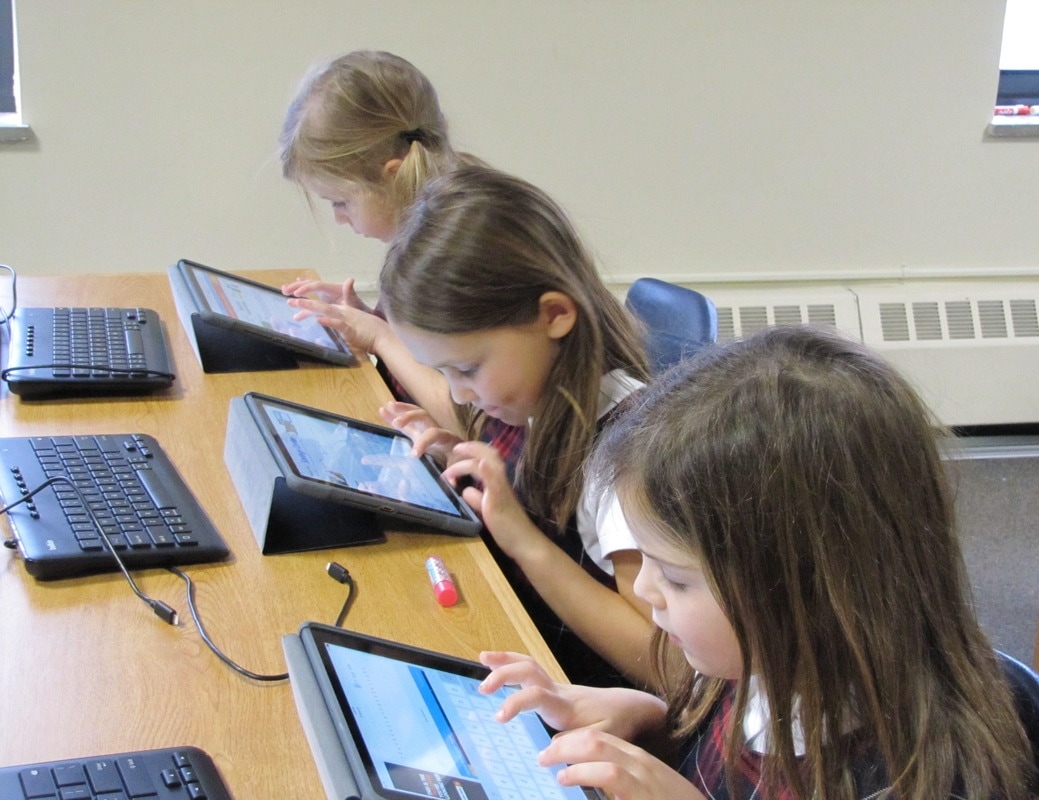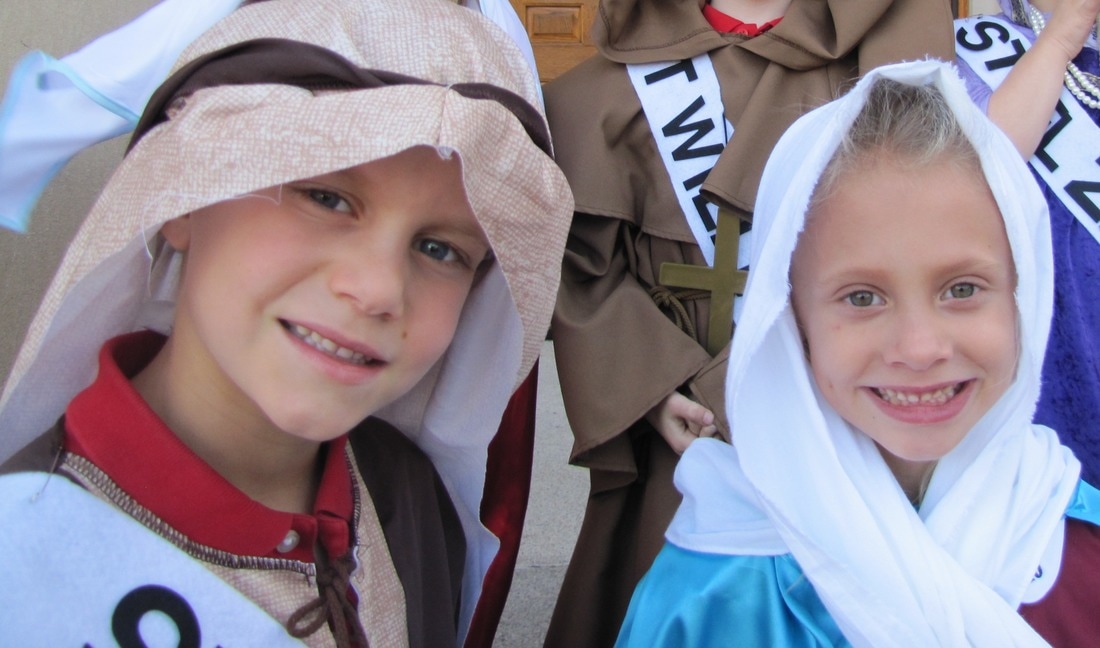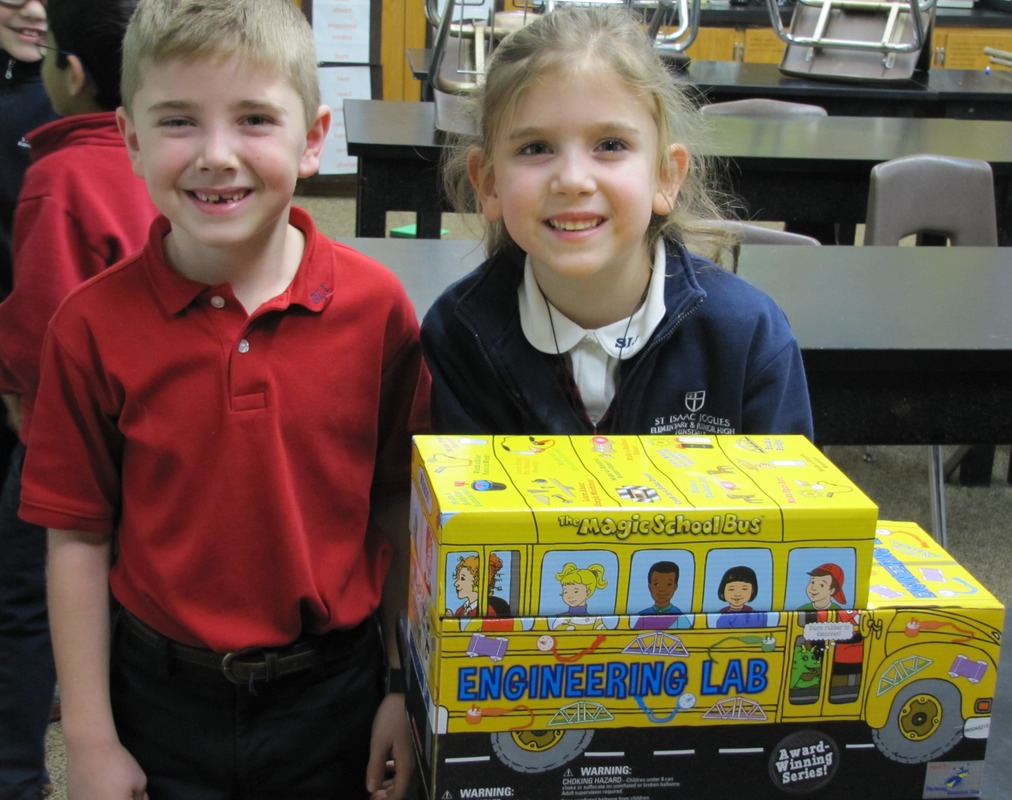1st Grade Curriculum
Religion
Students will learn through prayer, stories, activities and discussion about the Catholic faith. Catholic values are discussed and integrated in all subject areas. Concepts include a study of:
- saints;
- Sacraments;
- Holy Family;
- Holy Spirit, the church and Mass;
- liturgies;
- apostles;
- Loving God; and
- Jesus our Shepherd.
Language Arts
Students will develop skills to enhance their reading and writing. Concepts include a study of:
- phonemic awareness;
- initial and final consonants;
- blends and endings;
- long and short vowels;
- alphabetical order;
- sight words;
- compound words;
- word families;
- opposites;
- Zaner Bloser handwriting;
- complete sentences;
- phonetic spelling;
- punctuation and capitalization;
- parts of speech;
- following directions;
- listening skills; and
- group discussion.
Literature
Students will develop fluency, comprehension and interpretation of written information, use correct spelling and punctuation and communicate well in speech and in writing. Concepts include a study of:
- vocabulary;
- comprehension;
- main idea;
- oral reading;
- predicting outcomes;
- details;
- sequential order;
- context clues;
- conclusions;
- independent reading;
- dictionary skills;
- fiction and nonfiction; and
- poetry.
Mathematics
Students will acquire a knowledge of mathematics and the ability to apply math skills to solve problems through the use of their text book, activities and hands-on experiences. Concepts include a study of:
- identifying, writing and order numbers 0-100;
- addition and subtraction of numbers up to 20;
- place value;
- calendar;
- patterns;
- graphs;
- estimation;
- geometry and fractions;
- time;
- money;
- measurement;
- problem solving; and
- introduction of two digit adding/subtracting.
Social Studies
Students will develop an awareness of people around them. Concepts include a study of:
- Native Indians;
- Christopher Columbus;
- rules and laws;
- where people live – communities, cities, suburbs & farms;
- our country and neighboring countries; and
- our changing world.
Science
Students will use hands-on experiences to understand science in the physical and natural world. They learn through observing, predicting, questioning and explaining. Concepts include a study of:
- sinking and floating;
- magnets;
- weather;
- animals and behavior;
- plants and flowers;
- sound and light; and
- Earth.
Physical Education
Physical fitness and well being will be encouraged by learning and exploring activities that affect a healthy lifestyle. Concepts include a study of:
- motor movement;
- manipulative skills;
- parachute;
- simple recreational games;
- small group activities;
- team sport skills; and
- cooperative group games.
Art
Students will have the opportunity to express themselves in various art forms. Concepts include:
- recognizing and defining elements of design including line, shape, color & patterning, portraiture & textural art;
- drawing;
- painting;
- working within the color wheel;
- being introduced to book illustrators and featured artists, Alexander Calder and Claude Monet;
- introduced to African art; and
- using iPads.
Music
Students will have the opportunity to participate in music activities and to develop an appreciation for music. Concepts include a study of:
- group singing;
- musical notes and rhythmic patterns; and
- various types of musical instruments and elements.
Information Skills
Information skills include in-depth study of a topic using a variety of fiction and non-fiction picture books and early readers to obtain information. Units on fairy tales/fractured fairy tales; picture book biographies and poetry are included. Students read and tally their books from the Monarch list, voting in February. Several authors are studied in depth. Students will:
- differentiate between fiction & nonfiction titles and learn locations in the library;
- identify title, author and illustrator;
- discuss development of character and plot over course of a series; and
- self-select books for checkout with emphasis on early chapter books at appropriate reading levels.
Technology Skills
Use of technology is an integral part in our curriculum. In order to maximize student learning, it is incorporated in the classroom by our faculty for the purpose of instruction and assessment. Students are provided opportunities within the curriculum to incorporate technology through the use of iPads with a variety of apps to enhance the following skills:
- reading;
- word processing;
- graphing and data recording;
- graphic designing;
- online encyclopedia and database researching;
- art skills;
- guided internet activities;
- computer vocabulary, etiquette & competency;
- keyboard familiarity; and
- use of curriculum related software.
STEM
The Project Lead The Way Launch Interdisciplinary Curriculum is designed for first grade students to apply STEM knowledge, creativity, skills, and habits of mind, and discover that trying different approaches and solutions is an essential part of the learning process. Engineering design in first grade introduces students to “problems” as situations that people want to change. They can use tools and materials to solve simple problems, use different representations to convey solutions, and compare different solutions to a problem and determine which one was best. Emphasis is on thinking through the needs or goals that need to be met, and which solutions best meet those needs and goals. Through scaffolded learning activities, first grade students apply newly acquired knowledge and skills as they work as part of a team and utilize the design process to define the problem, sketch, build using available materials, test, and reflect on their designs.
Elements and skills of our Project Lead The Way Launch curriculum for First Grade include:
Elements and skills of our Project Lead The Way Launch curriculum for First Grade include:
- The PLTW First Grade Curriculum includes four modules that bring learning to life: Light and Sound, Light: Observing the Sun, Moon, and Stars, Animal Adaptations, and Animated Storytelling;
- The PLTW Curriculum is aligned with the Next Generation Learning Goals and Standards for First Grade;
- team collaboration/Communication/ Leadership skills;
- inquiry- rich content that links reading, communication,and science in every activity;
- problem-based-, project-based, and inquiry-based learning and team collaborative decision-making;
- academic concepts are coupled with real world problems;
- student develop understandings of light and sound, and design a model to solve a design problem;
- students explore and learn about a variety of animal and plant adaptations for survival, and combine all of their knowledge to solve a design problem;
- students explore both storytelling and animation by combining fundamental ideas in computer science and story-building skills to produce an animated story;
- students learn how to identify and describe patterns of the sun, moon, and stars and record data;
- use scientific inquiry investigations in each module;
- organize and maintain an engineering notebook;
- reason abstractly, quantitatively, and logically to solve a problem;
- use appropriate tools strategically;
- learning is measured through PLTW rubrics and assessments which use performance-based formative assessments and summative, content based specific assessments;
- STEM lab; and
- PLTW online curriculum, iPads, and videography.
Resource and Speech/Language Pathology
St. Isaac Jogues School provides on site speech/language and resource services. Curriculum is child specific and designed to meet needs in reading, math and communication skills if prescribed.





